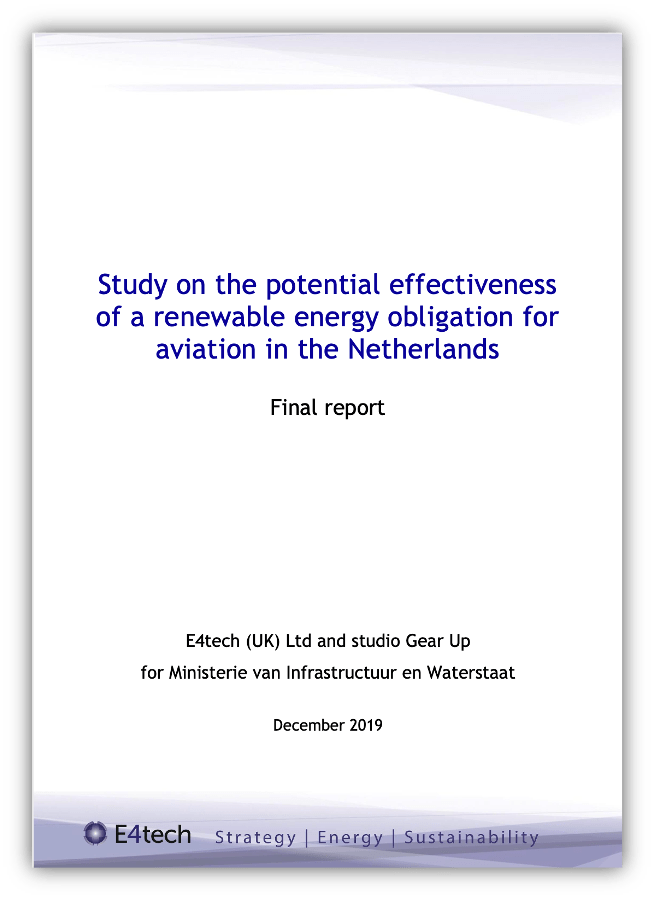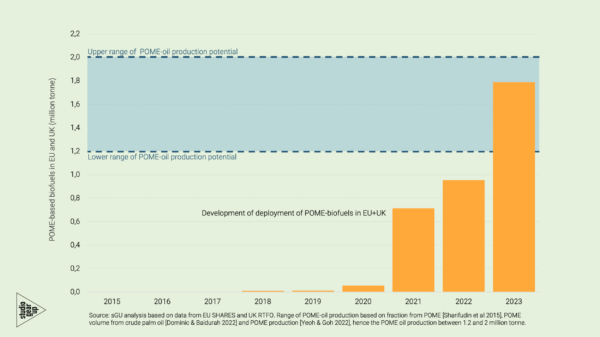For: Netherlands Ministry of Infrastructure and Water Management
[Aug – Dec 2019]
February 2019 The Netherlands aviation stakeholders and the Ministry of Infrastructure and Water Management adopted the Draft Agreement Sustainable Aviation. It covers international aviation, inland aviation and ground-bound activities. The Agreement expressed the ambition that in 2030 at least 14% of fuels used for aviation in the Netherlands are from sustainable origin. The agreement also mentioned that the Minister would investigate the policy option of an obligation for sustainable aviation fuels, preferably at European level.
E4tech and studio Gear Up teamed up to design an approach for the investigation and were awarded the execution of the project. The report addresses the existing legal policy framework at Netherlands and European level, provides an overview of the various available policy mechanisms, focuses on sustainability requirements, assessed the economic impacts as well as the issues related supply logistics.
Overall conclusion from the report is that “Compared with other policy measures, a blending obligation in the Netherlands would provide the highest level of assurance that a 14% target would be met.”
The report can be downloaded here:

More information:
- Press release government (3 March 2020)
- Letter to Parliament (3 March 2020)



